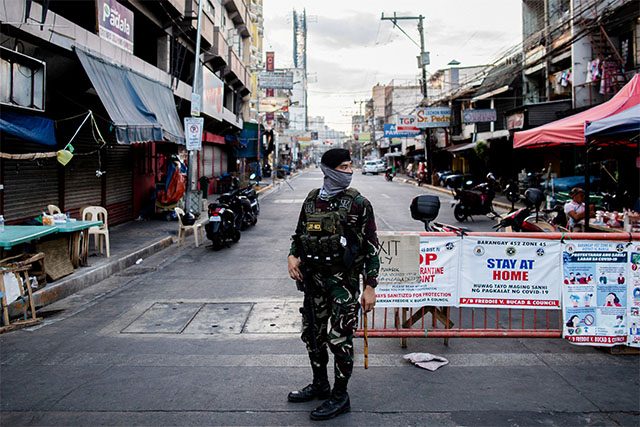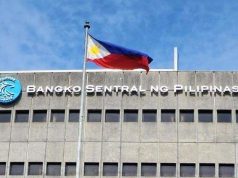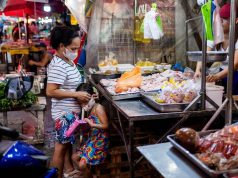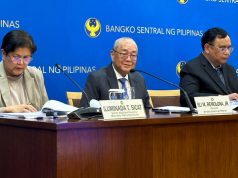
MANILA— The Philippines‘ economic growth unexpectedly shrank in the first quarter as the coronavirus pandemic brought domestic consumption and business activity to a grinding halt.
Gross domestic product contracted 0.2% in January to March from the same period last year, the first decline since the fourth quarter of 1998, data from the statistics agency showed on Thursday. That compares with the 3.1% expansion expected in a Reuters poll.
Growth in the fourth quarter was revised upwards to 6.7%, from 6.4% previously, after the statistics office changed the base year it uses to calculate economic output to 2018 from 2000.
To slow the rising cases of the new coronavirus, the Philippines placed the main island of Luzon, which accounts for more than two thirds of the economy and half of the population of more than 107 million, on lockdown from mid-March until the end of April.
The enhanced community quarantine (ECQ), as the measures are called, was relaxed from May 1, paving the way for incremental resumption of work and commercial activity in low risk areas. However the capital Manila, where most cases are, remains under strict stay-at-home orders.
“Containing the spread of the virus and saving hundreds of thousands of lives through the imposition of ECQ has come at a great cost to the Philippine economy,” Acting Economic Planning Secretary Karl Chua told an online news conference.
The Philippines‘ benchmark share index was down 0.2% by 0236 GMT, while the Philippine peso fell as low as 50.54 to the dollar, from Wednesday’s close of 50.46.
“We can start reversing the economic trajectory by June,” Chua said, as the government accelerates spending on big ticket infrastructure projects.
The Philippines recorded its first local transmission of the virus in March and has since registered more than 10,000 confirmed cases and more than 600 deaths.
The Bangko Sentral ng Pilipinas (BSP) has cut interest rates three times this year, with the latest move in April an off-cycle easing that brought the benchmark interest rate to a record low of 2.75%.
Before the release of Thursday’s data, BSP Governor Benjamin Diokno hinted he was in no rush to slash policy rates again, saying it would be prudent on the part of policymakers to wait for the recent cuts to work their way through the economy. —Reporting by Neil Jerome Morales and Karen Lema; Additional reporting by Enrico dela Cruz; Editing by Sam Holmes









